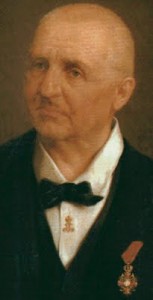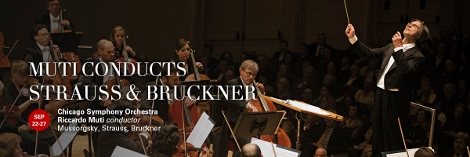AN EXPERIENCE NOT TO BE MISSED
 On a website which attempts to list every Anton Bruckner orchestral recording offered to the public, the discography collector and annotator John F. Berky states that the Austrian composer “expanded the concept of the symphonic form in ways that have never been witnessed before or since. When listening to a Bruckner symphony, one encounters some of the most complex symphonic writing ever created. As scholars study Bruckner’s scores they continue to revel in the complexity of Bruckner’s creative logic.”
On a website which attempts to list every Anton Bruckner orchestral recording offered to the public, the discography collector and annotator John F. Berky states that the Austrian composer “expanded the concept of the symphonic form in ways that have never been witnessed before or since. When listening to a Bruckner symphony, one encounters some of the most complex symphonic writing ever created. As scholars study Bruckner’s scores they continue to revel in the complexity of Bruckner’s creative logic.”
Yet most of us are not scholars, and we listen to music because it moves, touches and inspires us as little else on the planet does. So when you attend the concert of Bruckner’s Symphony No. 7, presented by legendary maestro Riccardo Muti with the Chicago Symphony Orchestra at Symphony Center (Sept. 22-27, 2016), you may go ahead and analyze this inimitable work just like any other great classical work; you may point out harmonic and melodic motifs; you may admire the orchestrations; and you may notice phrases that are regular and irregular. But when all is said and done, none of that will explain either Bruckner’s absolute virtuosity or the emotional impact of this towering work. Free your brain, open your senses and prepare for an experience so awe-inspiring and transporting that analysis will only result in keeping you earthbound.
Anton Bruckner’s Symphony No. 7 in E major enters strangely mystical territory. The hushed intensity of its opening string tremolo seems to emerge out of silence. The first movement gradually begins to unfold from an expansive theme which, according to some accounts, came to Bruckner in a dream. It’s simultaneously serene and ghostly, reverent and terrifying. It hints at majestic, awe-inspiring, mysterious, and even frightening aspects of the sacred. In Bruckner’s music you can sense the cosmic power of sound, as well as silence. And if you’ve heard the awesome 2007 live recording of the Seventh with Haitink leading the CSO, you’ll understand why I am more than excited.
Muti, 10th music director of the CSO, begins the program with two tone poems–Modest Mussorgsky’s A Night on Bald Mountain and Richard Strauss’s Don Juan, Op. 20. Mussorgsky’s St. John’s Eve on Bald Mountain (1867), which relates a witches’ sabbath, was actually never played in Mussorgsky’s lifetime; in 1886, five years after his death, Rimsky-Korsakov published an arrangement of the work, which was then rearranged by Leopold Stokowski for its inclusion in Walt Disney’s famous 1941 film, Fantasia. Bald Mountain contains terror, playfulness, and reverence while Strauss’s vivid characterization of the bold seducer Don Juan is lyrical, ardent, intense, stormy, and exuberant–all qualities you’ll find in the Bruckner. All 3 works, first performed in the 1880s, will also be performed at Champaign-Urbana on Sept. 24.
photos courtesy of CSO
Muti Conducts Strauss & Bruckner
Chicago Symphony Orchestra
Riccardo Muti, conductor
Symphony Center, 220 S. Michigan Ave.
Thursday, September 22, 2016 at 8:00
Friday, September 23, 2016 at 8:00
[Saturday, September 24, 2016 at 7:30 at Champaign-Urbana]
Tuesday, September 27, 2016 at 7:30
for tickets, call 312-294-3000 or visit CSO


